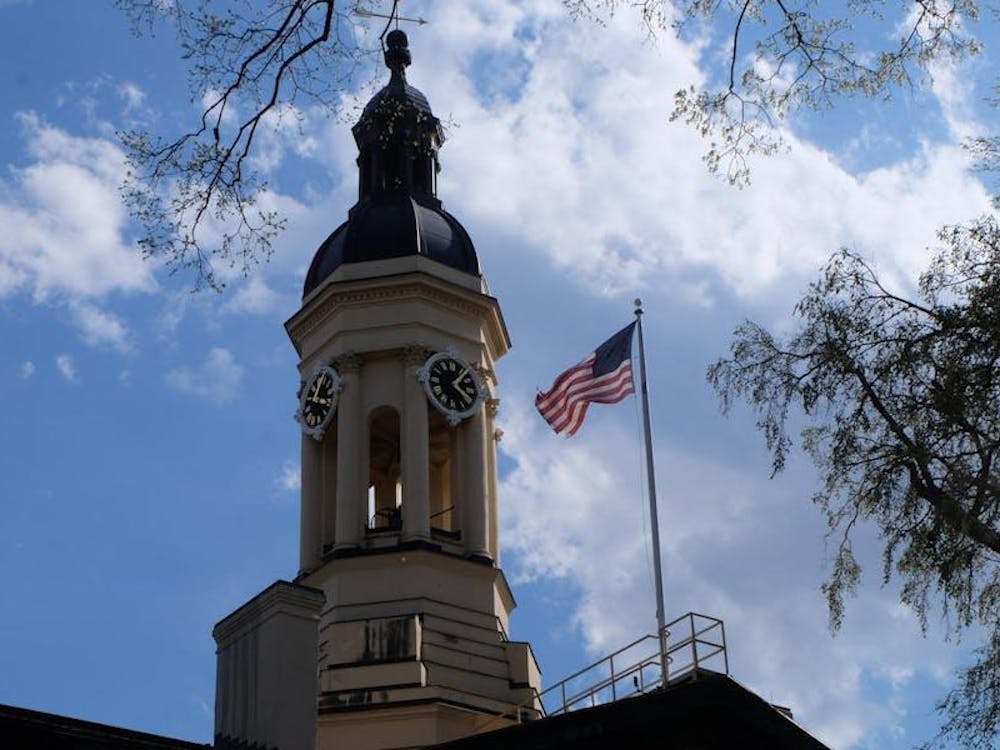The concept of taking care of others is at the core of the Asian-American identity, U.S. Deputy Secretary of Labor Christopher P. Lu ’88 said at the closing banquet of “We Flourish,” the inaugural reunion conference for Asian-American alumni, onSaturday.
Denny Chin ’75, a member of the University Board of Trustees and the steering committee that helped to organize the event, said that the weekend-long conference drew over 700 participants. The conference featured talks by alumni including Sir Gordon Wu ’58, chairman of Hopewell Holdings Ltd. and the namesake of Wu Dining Hall, Chin, who is also a judge on the United States Court of Appeals for the Second Circuit and Sheryl WuDunn GS ’88, Pulitzer Prize-winning journalist and author of “Half the Sky.”
Students, faculty and alumni joined in discussion about the appropriateness of the “model minority” label, the merits of Asian-American studies and the value of leadership and service.
In his keynote address, Lu provided an interpretation of the title “We Flourish,” saying that “we” refers to the Princeton community.
“Despite differences in our individual histories, we are joined by intrinsic common values, love for university, and a desire to better our community,” he said.
According to Lu, the term “Asian-American” is merely a loose government designation for a diverse community, as many University alumni would identify as ninth- or tenth-generation Americans while others would identify as immigrants. The weekend conference compelled the alumni community to examine its hyphenated identity, successes stymied by glass and bamboo ceilings and the absence of legislative representation, Lu said.
Lu nonetheless explained that the challenges faced by the alumni community are not necessarily the same for the vast majority of the 18 million Asian-Americans.
“As we gather here this weekend and rejoice in what we have accomplished, we must remember that not everyone in our extended family has prospered as we have,” Lu said. His point set the context for “flourish,” which refers to Asian-American alumni's obligation to help and create opportunities for fellow members of the community.

Lu explained that though Asian-Americans are wealthier than any other demographic, the community is not monolithic.
In fact, Asian-Americans have the highest rate of long-term unemployment, and one out of six lacks basic health insurance, he noted. He also said Asian-Americans are the least likely to be tested for HIV, while Southeast Asian-Americans display one of the highest poverty rates in the country.
Lu added that while many Asian-Americans have voiced their concerns about merits of the admission system for top-tier colleges, still more must cope with barriers to accessing basic education. In recent years, several Asian-American communities have even become targets of hate crimes.
Lu called for the alumni community to address these educational and health disparities collectively. Whether by growing businesses or recounting stories in literature and media, everyone can devote some portion to charity and volunteer for groups that serve.

“After all, as Asian-Americans, when we climb the ladder of success, we don’t pull the ladder up behind us. We reach down and give a hand to the next person trying to climb up,” Lu concluded.
Chin noted that “We Flourish” is not simply a celebration of generations of Asian and Asian alumni in Princeton.
“'We Flourish’ certainly suggests that we are proud of all the successes we have, but [it's also] a part of what how much we want to help everyone flourish,” Chin said.
Sallie Kim ’86 and Nancy Mak ’80 said that a gathering of this scale would have been unimaginable for them just a few decades ago.
Kim explained that during her undergraduate years, the number of Asian female students at the University did not exceed 20. Mak, a history major, said she recalled being one of the only students with black hair when she marched through the FitzRandolph gates.
“It’s amazing to be back here and see how much diversity there is now on campus,” Mak said. “When I was here as a student, I was easily identifiable as that girl who studied outside [the porch at] West College.”
Though Asians were still a minority, WuDunn said she found the University a very nurturing place when she studied there. She said that to her, the reunion is a celebration of how the alumni community has flourished not only economically, but also spiritually and psychologically.
Kavita Ramdas GS ’88, senior advisor of the Ford Foundation, said she credits the University with inspiring her commitment to public service. A native of India, Ramdas studied at the Wilson School as a graduate student and said she embraced its unofficial motto of “being in the nation’s service and the service of all nations.”
“It was a transformative experience. I always wanted to be in service, but I didn’t exactly know what or how,” Ramdas said."When I came to Princeton and said I want to make the world a better place, a fairer place, and a more just place, [my professors] didn’t just say, ‘Oh, go get a real job.’ Everyone lifted my dreams."
Correction: Due to a reporting error, an earlier version of this article inaccurately transcribed a quote said by Christopher P. Lu ’88. The quote has been removed. The 'Prince' regrets the error.







